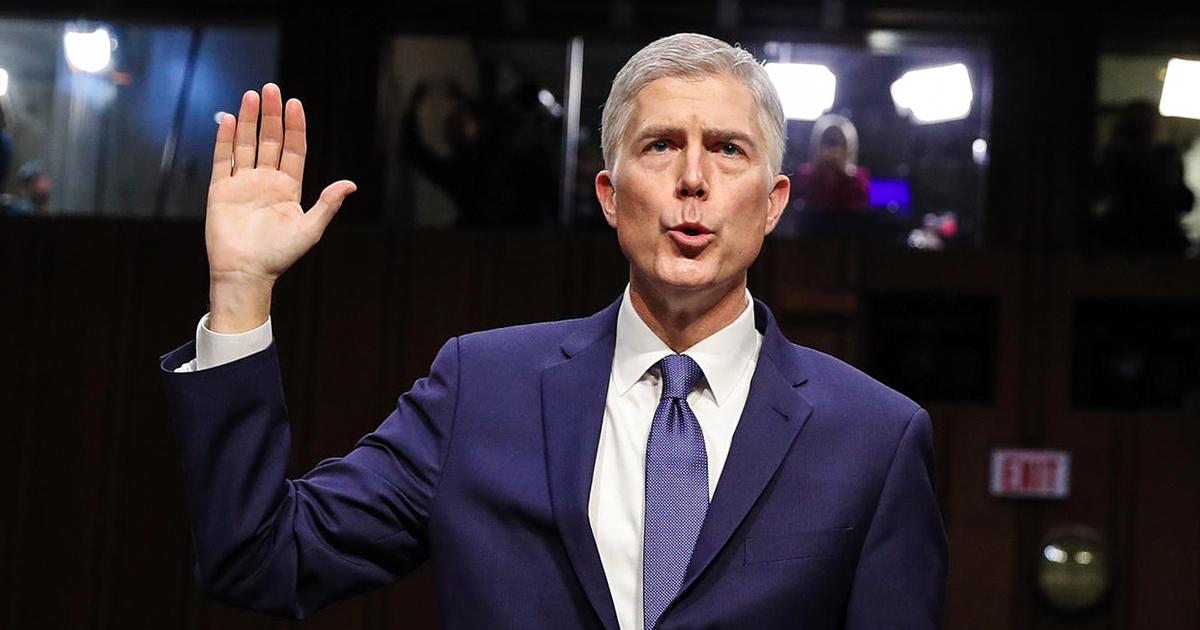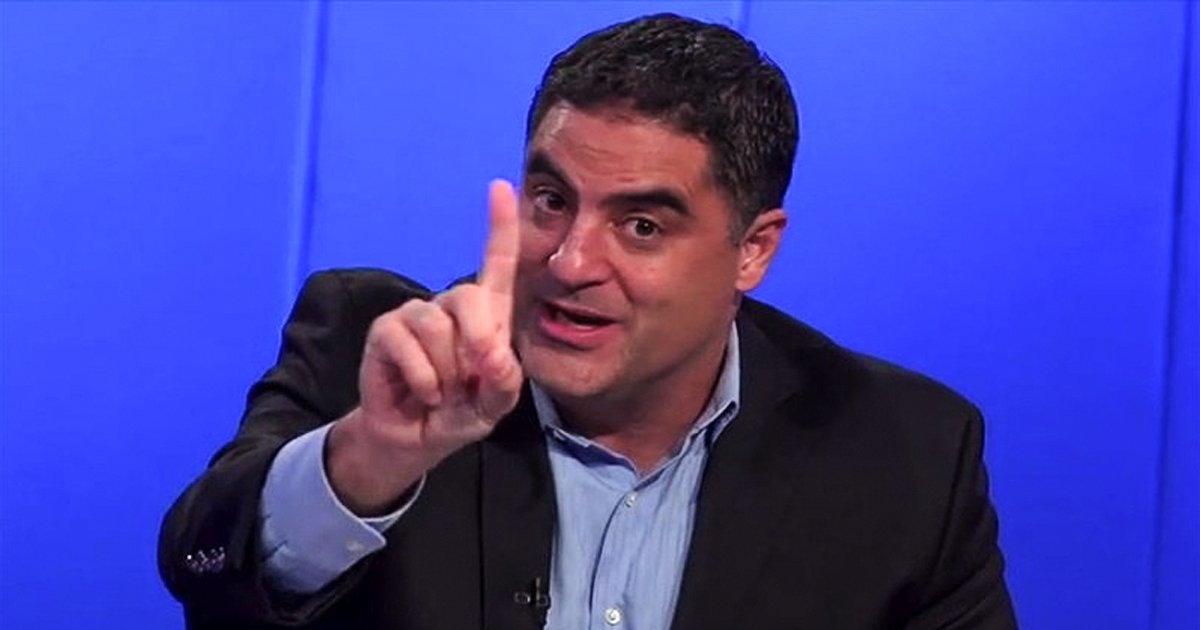Ari Berman, from The Nation, joins Ring of Fire’s Sam Seder to give his analysis on the Senate Judiciary Committee Hearings on SCOTUS nominee, Neil Gorsuch, and why we should be worried about the conservative judge’s qualifications when it comes to justice in the courthouse.
Transcript of the above video:
Sam: So Ari, of course, there were two major narratives this week. One of course was the fact that the President is being investigated by the FBI in a counter intelligence investigation but the other story this week which got still some attention in the media but I don’t think it got the attention from the left broadly speaking that it probably warranted because Neil Gorsuch is going to be sitting on the Supreme Court or very likely to for decades. This guy is, I mean, first off, give us your sense of Neil Gorsuch pre-hearings. Who is this guy?
Ari: Sure. I mean first off I just want to pick up on something you quickly said which is that this nomination didn’t get enough attention from the left. I would argue that that’s true about the entire process, really about the courts in general and certainly about the Supreme Court. I mean the fact that Merrick Garland was blocked, didn’t even get a hearing for the first time in US history, at least in contemporary US history where a president in office nominated a Supreme Court judge and the Senate didn’t even hear it. To me there needed to way more outrage from the left about it but also the media, the kind of establishment didn’t just need to treat this like it was just another act of obstruction. It was an unprecedented act of obstruction. Even just how we got to the point of talking about Neil Gorsuch is in and of itself pretty absurd because Merrick Garland should be sitting on the Supreme Court right now. Okay, but on to your question about I want to know …
Sam: Well I want to circle back to that at the end of this conversation.
Ari: Okay.
Sam: But go ahead.
Ari: On to your question about Gorsuch himself, so he is someone who … It seems like he was basically created in a lab by the Federalist Society, as someone who would be tall and handsome and smooth talking and you really would know almost nothing about him except for the fact that they would know that he’s extremely conservative. So first off, he comes from a family that’s very, very conservative. His mother was kind of a pioneer in the pro-life movement in Colorado. She worked in the Reagan EPA and was actually censored there and had to resign. He was someone who when he was in college said lots of really kind of provocative things, was very conservative. Opposed to the anti-apartheid movement for example, defended Iran Contra.
On the bench he’s been a pretty down the line conservative on most issues. For example he joined the Hobby Lobby decision. He joined decisions that would expand corporate power. He ruled against a truck driver who almost froze to death in subzero conditions when his truck broke down, was fired by his employer. Gorsuch was the only judge to rule against him and rule for the employer.
He’s also kind of an unknowable guy. What’s interesting to me is he basically kept saying to the committee, I don’t have any agenda here. That my judicial philosophy, he said my judicial philosophy is that I decide cases. It sounded very, very similar to what John Roberts said when he was nominated as chief justice. Remember John Roberts said, ‘I’m just going to be an umpire. I’m just going to call balls and strikes.’ But we know now from Roberts’ decisions gutting the voting rights act, from Citizen’s United, so many cases in the Roberts court that Roberts wasn’t an umpire. In fact he’s been a deeply reactionary figure and has a very, very significant project that he wants to undertake in the Supreme Court.
I think Gorsuch will be the same. I think the fact that people are just kind of treating him as this polished smooth guy when he’s going to be on the court for 40 years, pushing it to the right potentially is very, very alarming.
Sam: I mean it’s interesting to me because, and I want to get into the implications of Garland not sitting in that seat in a moment, but the fact that he gets up there and just provides these platitudes during the hearings, right? It’s as if it’s like, there was a real sort of Hollywood notion to this. This guy was the most prepared it seemed to me, the most cautious circumspect, the most practiced and prepared nominee I think I’ve ever seen go in front of the Supreme Court, in front of the Judiciary Committee.
Even when … There were moments where he was so anticipating the questions from the Democratic Senators that he had to catch himself from saying, ‘Off the top of my head I would say these cases,’ and say, ‘Off the top of my head, I mean I have them right here in front of me.’ Like there was a couple of moments where he actually literally had to do that. That quality resonates so much with the legal profession that this guy gets credit for his practice of the law as opposed to the implications of the law.
What is fascinating to me about this too, let me just take this a step further, if you are a liberal leaning judge or lawyer hoping to go on this career track, you have to stay away from places like the ACLU. Even like in law school at this point, but if you are a right wing one, you can go and work for these corporate law firms. You can even tell a president as Neil Gorsuch did how to sidestep an anti-torture law and none of this is held against you in the same way. It’s fascinating to me.
Ari: Well I also think there was another dynamic here which is that President Trump made the nomination. I think people expected President Trump to just name some absolutely crazy person because Trump is absolutely crazy. When he nominated someone that seemed moderately sane, if extremely conservative, he got a lot of credit for it. Lindsay Graham said repeatedly at the hearings, I don’t agree with President Trump on anything but I think he’s the best pick you could have made. It was such a low bar because Trump was making it …
Sam: Right. Everybody thought he was going to pick Judge Judy or something.
Ari: Like if you compare Gorsuch to Merrick Garland, you would say Merrick Garland is 1000 times smarter than Neil Gorsuch. He’s 1000 times more qualified. He has a ton more experience. He was widely respected by both sides of the aisle. Merrick Garland would have aced this hearing in his sleep, but he never got a hearing. That’s the whole point. We should have never even gotten to this position in the first place because what President Obama did is he bent over backwards to find the most qualified person that both Republicans and Democrats could vote for.
Republicans wouldn’t even vote for him. They wouldn’t even give him a hearing. Trump picked someone who seems on the surface to be very conciliatory because as I said, he’s quite polished. He’s personable. He made a lot of lame dad jokes, but there’s nothing conciliatory about him. I have no doubt that he will be somewhere between John Roberts and Justice Scalia on the court, meaning sometimes he’ll be kind of a guy who seems moderate but is extremely conservative like Roberts. Sometimes he’ll just be a guy like Scalia who doesn’t care and will be outspokenly conservative but I’m under no real … I’m under no mistaken belief that he’s going to be any sort of advocate for liberal policies or else he would have never been recommended by the Federalist Society, the Heritage Foundation and nominated by Trump.




